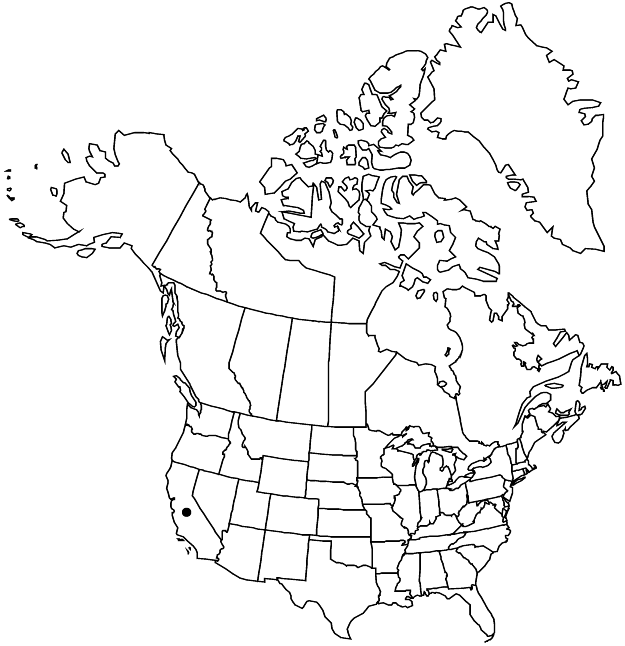Chorizanthe angustifolia
Proc. Acad. Nat. Sci. Philadelphia 4: 17. 1848.
Plants decumbent or prostrate, 0.3–1 × 0.5–10(–13) dm, villous. Leaves basal; petiole 1–4 cm; blade oblanceolate, (0.5–)1–4(–5) × (0.2–)0.3–0.6 cm, villous. Inflorescences rather dense with secondary branches suppressed, grayish to reddish; bracts 2, similar to proximal leaf blades only reduced, short-petiolate, becoming linear and aciculate at distal nodes, acerose, 1–4 cm × 2–8(–10) mm, awns absent. Involucres 1, reddish, cylindric, not ventricose, 1.5–2(–2.5) mm, without scarious margins or if so then pinkish, thin, and restricted to basal portion of teeth, not corrugate, villous abaxially; teeth spreading, equal, 0.5–1.5(–2) mm; awns uncinate with longer ones 1.5–2.5 mm and anterior one mostly 2–2.5 mm, these alternating with shorter 1–1.5 mm ones. Flowers slightly exserted; perianth bicolored with floral tube white and tepals white to rose, campanulate, 2–3 mm, pubescent abaxially; tepals connate 1/3 their length, monomorphic, oblong, usually rounded and erose apically; stamens 3 or 6–9, slightly exserted; filaments distinct, 2–2.5 mm, glabrous; anthers cream to rose, ovate, 0.2–0.3 mm. Achenes light brown, globose-lenticular, 2–2.5 mm. 2n = 38, 40, (42, 44, 46).
Phenology: Flowering Apr–Jul.
Habitat: Sandy places, coastal scrub communities, pine-oak woodlands
Elevation: 10-500 m
Distribution

Calif.
Discussion
Of conservation concern.
Chorizanthe angustifolia is common along the immediate coast and mesas mainly in west-central California. Plants with slightly scarious, pink involucral margins have been distinguished as var. eastwoodiae, but as both this and the nonscarious var. angustifolia occur together, no distinction is made here. William Gambel obtained the only collection known from Los Angeles County in the 1840s; it has not been found there since. Narrow-leaf spineflower often grows with C. diffusa in intermingled populations and care must be taken to avoid mixed collections.
Selected References
None.